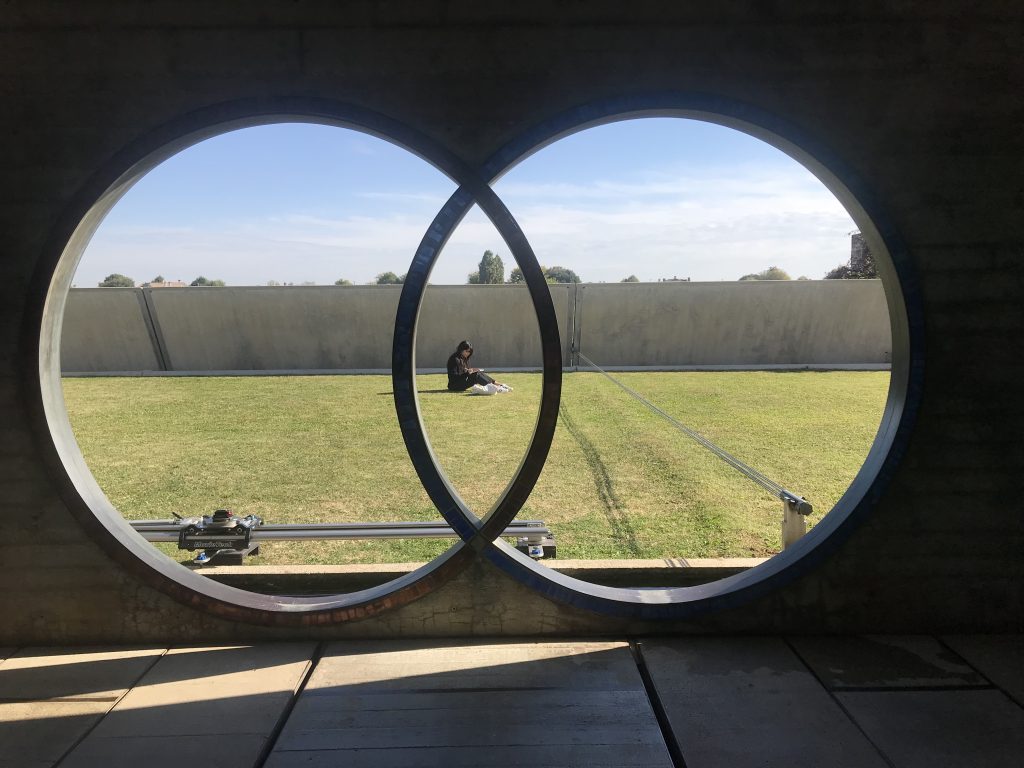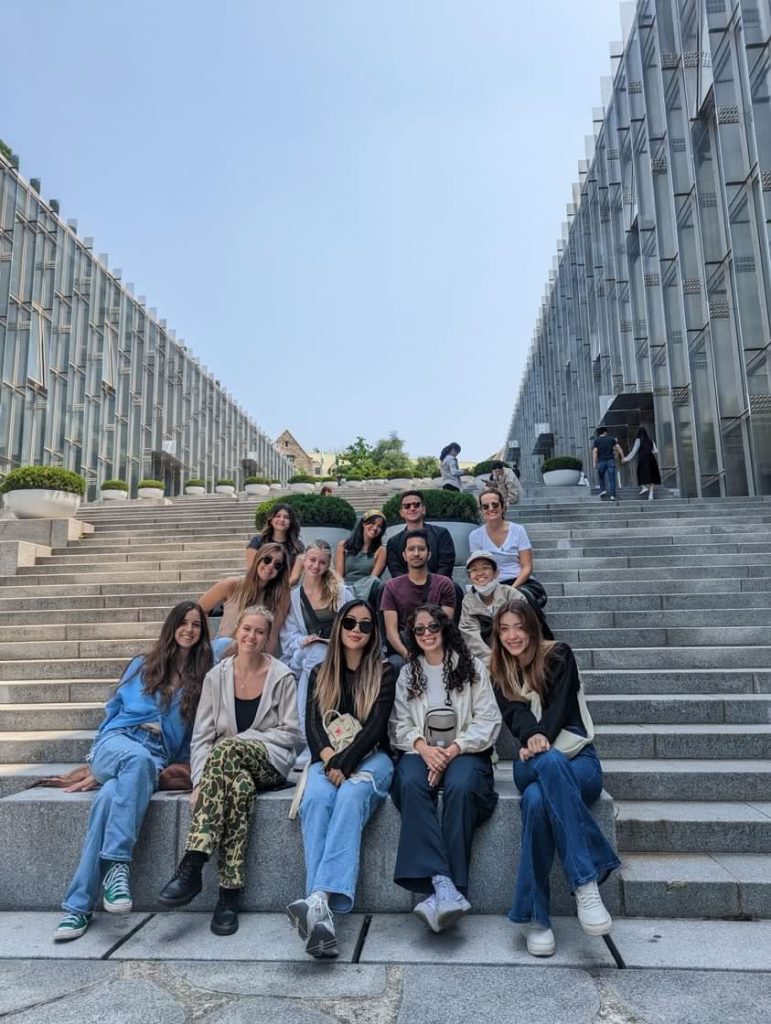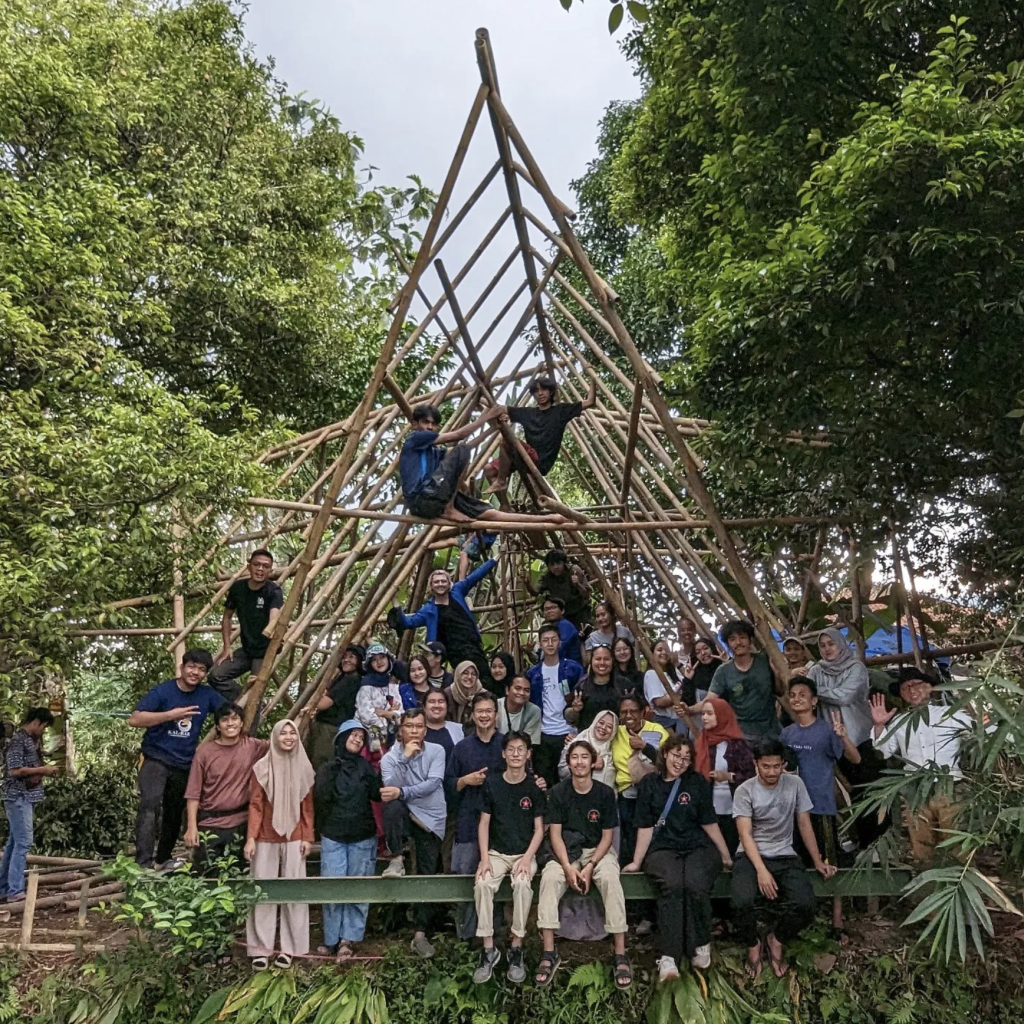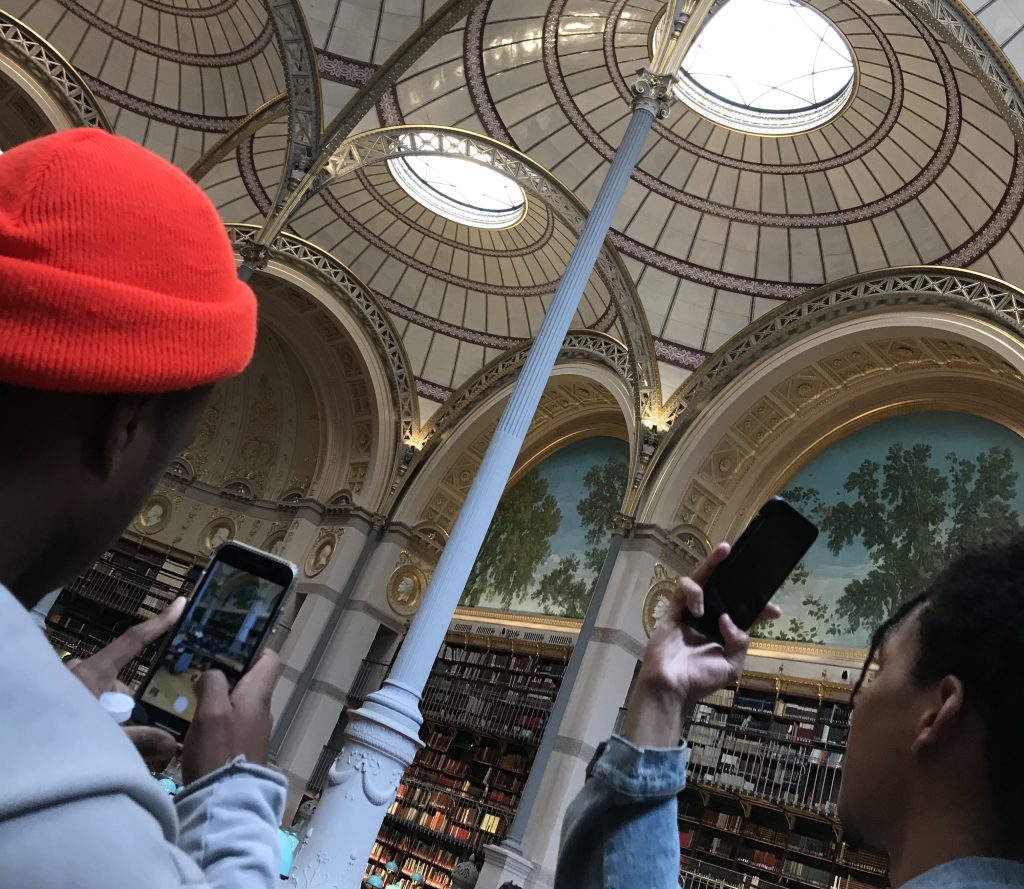In addition to required travel to cities in the United States, students in the School of Architecture have the option of participating in a range of faculty-led study abroad programs. These transformative experiences include summer programs in East Asia and Southeast Asia, as well as our flagship study abroad program in Vicenza, Italy.
VICENZA INSTITUTE OF ARCHITECTURE

The Vicenza Institute of Architecture (VIA) Program is a one-semester satellite-learning program at the UF School of Architecture’s facilities in Vicenza, Italy. This travel-intensive program recognizes the importance of the physical experience of the latest innovations in architectural design as an integral part of a designer’s education. The program is an option for Bachelor of Design students in their Design 7 or Design 8 semesters and Master of Architecture students in their Advanced Grad 3 semester. The program fee includes housing, two meals per day, travel and lodging for three multi-day group trips, and travel for group day-trips. Additional information at the program site.
The VIA program in Vicenza is one of the longest-running study abroad programs at the University of Florida. Vicenza is a major center of the Veneto, the mainland region around the urban archipelago of Venice. An important locus of intellectual life during the 15th and 16th centuries, the area has an abundant architectural heritage–from the works of local Renaissance architect Andrea Palladio to the 20th-century projects by Carlo Scarpa. The program focuses on evaluating and understanding the historical, social, cultural, and physical aspects of this particularly rich urban context through design, research, and documentation. Lectures and presentations by local Italian educators and practicing architects augment instruction from University of Florida faculty. Field trips throughout Italy and Europe further enhance your educational experience. The UF VIA Program’s fall and spring course offerings parallel those offered at the Gainesville campus, ensuring that you remain on track with your curricular requirements while studying overseas. The School’s facilities include dedicated design studio spaces, a multi-purpose gallery and library used for classroom instruction and exhibitions, facilities for digital scanning and printing, and administrative offices. The School has a number of apartments for faculty and students, all located within the urban core of Vicenza.
EAST ASIA
The East Asia summer study abroad program is a 9-credit Summer C studio and seminar with a 4-week traveling component that visits prominent East Asian cities Tokyo, Kyoto, Osaka, and Singapore. The nine-credit program is offered during Summer C; graduate students fulfill the Advanced Grad 3 studio, undergraduate students fulfill Design 7 or 8, and both take an elective seminar. Through the introduction of texts, case studies, and physical visitation, students gain an understanding of the underlying forces driving and affecting urban development in the contemporary East Asian megacity. In addition to travel documentation, research observations and writings, a design charrette component is required as part of a design project proposal. Throughout the course, the development and eventual completion of a final paper with a topic of the student’s choosing is required. The course commences in Gainesville with initial lectures, discussions, and research elements intended to familiarize students with the broad social, political, and economical contexts of the subject cities, as well as their geographical layouts. Case study research of recent developmental initiatives and projects will be required to zoom in on issues of development at the urban scale. The program concludes at the end of Summer C with the submission of a research paper and final studio reviews. Find additional information at the program site, or contact program director Prof. Lee Su Huang at leehuang@ufl.edu.

Bali, Indonesia

This Summer C program includes a community design practice studio component equivalent to Advanced Grad 3 and a history/theory elective seminar on the subject of Sacred Space. The studio begins in Florida and continues with a workshop in Bengkala village of Buleleng District, Bali, Indonesia. The studio focuses on rural development, a promising trend that is currently happening in Southeast Asia, especially in Indonesia. Faculty and students from the University of Indonesia (Jakarta), the Institute Technology of Bandung (Bandung), the University of Gajah Mada (Yogyakarta) and University Marwa Dewa (Denpasar) participate in the workshop. The design studio will be a comprehensive design from concept to a hands-on construction workshop, teaching students both as ‘makers’ as well as ‘designers’ who give specific instructions to several participating local builders, artisans, sculptors, and artists. The studio is an extension of community design practice, emphasizing heritage/ecological conservation (i.e. Subak, Balinese water distribution,), sustainable rural design and planning, while also promoting constructive future advancement for the village. As an anticipated community-based tourist destination, the village bolsters a deeper connection between the local host-residents and visitors, and promotes environmental and cultural protection and enhancement, which is a more sustainable model for future tourism. The circular economy concept–where materials, products, and services are kept in circulation for as long as possible–underscores the design consideration and decision. Students learn about the circular economy and how it is being implemented as a better option to the usual model we have been practicing in which resources are mined, made into products, and then become waste. The seminar will provide some theoretical/historical foundation, allowing students to read, discuss, review, and write. The deliverables from these two courses include a portfolio of the design workshop and a research paper. For more information, contact program director Prof. Albertus Wang, aslwang@ufl.edu.
PARIS
Comprising two weeks of travel study in Paris within a six-week Summer A studio, The Architecture & Urbanism of Paris examines the city as a layered artifact, constructed out of the collective social, political, and economic influences embedded in its history, with a specific emphasis on Paris’ modern and contemporary city beginning with Haussmann. Building upon this legacy, Paris has become a leader in implementing innovative sustainable design and urban development strategies. From eco-villages to the 15-minute city, Paris is committed to reimagining the capital city through policies that foster the adaptive reuse of heritage structures, urban foresting, and resilient architecture. While in Paris, students will participate in daily guided tours of the city as well as buildings and interiors. Students will also have the unique opportunity to meet with prominent Parisian architects, designers, historians, and officials, who will discuss their work and ideas about the city. Projects visited are many and include the Bourse de Commerce by Tadao Ando, Gehry’s Fondation Louis Vuitton, Palais Garnier, and Corbusier’s Villa Savoye. Studio proposals will emerge from research, discussion, and analyses, and will include a design charrette component. Additional information, including program fees, dates, and itineraries, is available at the program site.

PRESERVATION INSTITUTE NANTUCKET
The UF Preservation Institute: Nantucket (PI:N) has operated as a center for education in historic research and architectural preservation on Nantucket Island since 1972. Settled by Massachusetts colonials in 1659, this “far away island” (the meaning of Nantucket’s name in the native language) grew into an important whaling village. Its significance waned in the mid-1850s with the decline of the whale oil market and dependent industries. It has since become primarily a summer retreat for New Englanders. The island’s isolation spared the town from the encroachment of urban sprawl experienced by most other colonial New England towns, preserving the integrity of its 18th-century character – and making it an invaluable context in which to study issues of planning and designing within a profoundly historic environment. In the UF PI: N Program, you can earn credit over the summer in advanced courses in the theory, practice, methodology and technology of architectural preservation and building research. Find additional information at the program site, or contact program director Prof. Cleary Larkin, Ph.D., at clarkin@ufl.edu.